Philippines Conservation
Bristol Zoological Society has been working with local partners in the Philippines since 2014.
Together with our partners, we aim to reduce illegal hunting, protect the remaining forests of Panay and Negros Islands, and support healthy populations of local threatened species in human care, which can be part of reintroduction efforts.
Our Philippines projects
Community support and engagement
In collaboration with our in-country partner, PhilinCon, we work with local communities within the biodiversity-rich area of northwest Panay, to understand and improve their perceptions of local wildlife and promote sustainable human-wildlife co-existence.
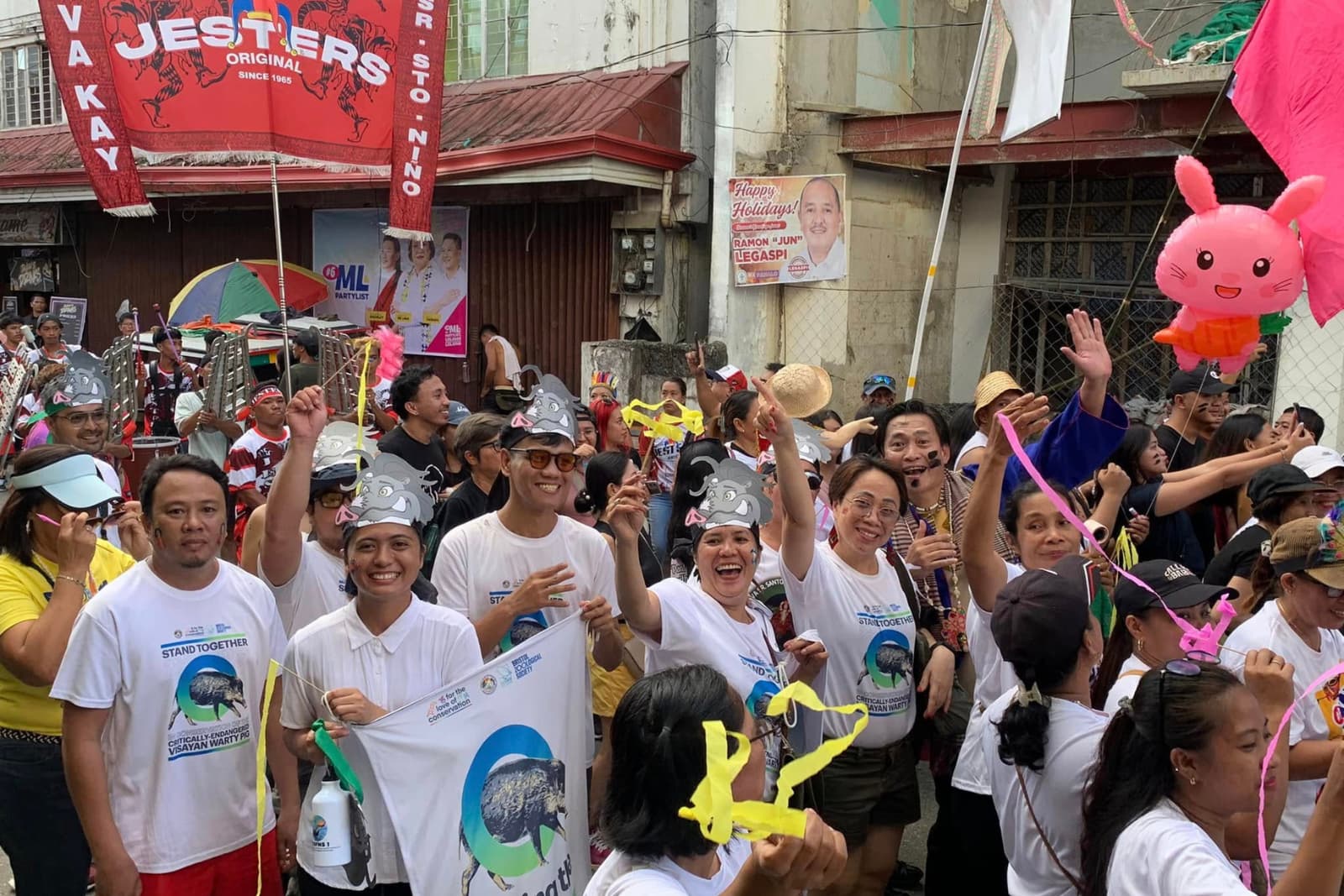
Key achievements
We recently completed our 3-year 'Darwin Project', funded by the Darwin Initiative, to investigate hunting of the Visayan warty pig and implement community-led mitigations
We supported 8 communities with training and start-up materials to diversify their livelihoods (e.g. chicken farming, rice retail, and vegetable farming).
We implemented a wildlife campaign to instil pride and appreciation for local wildlife, with over 30 activities and events conducted across 8 communities.
Results showed improvements in the wellbeing of community members, as well as in their knowledge, perceptions and attitudes towards local wildlife.
The Darwin Project won the 2025 BIAZA Award for Field Conservation.
Our new project, funded by the Woodspring Trust, will allow us to collaborate with local Indigenous communities to understand their forest use and resource needs.
Biodiversity monitoring and ranger patrols
We work with PhilinCon to monitor biodiversity within the Northwest Panay Peninsula Natural Park, home to several of our flagship species including the Visayan warty pig and the Negros bleeding-heart dove. We have also supported ranger patrols within that area to monitor and deter illegal activities such as hunting.
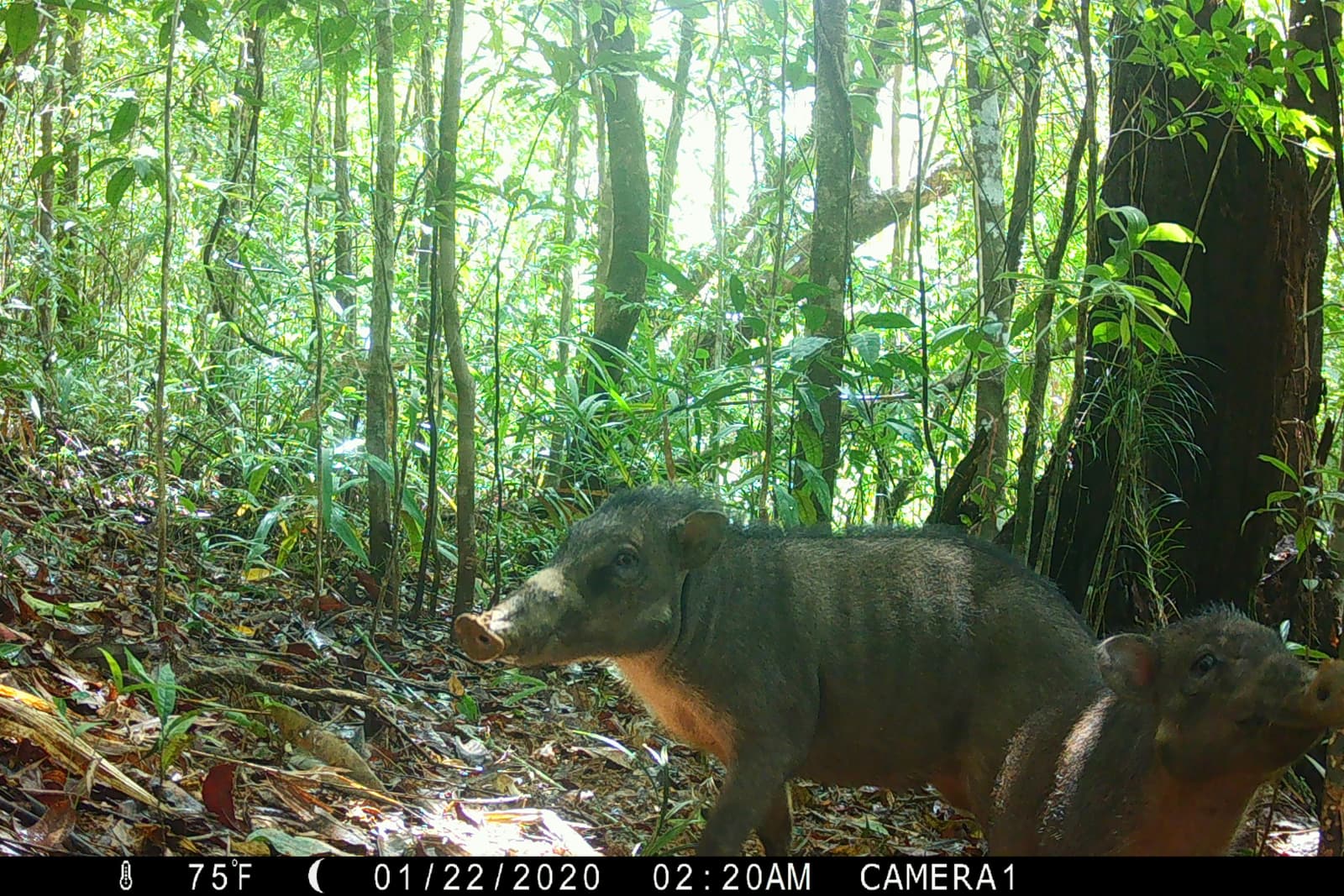
Key achievements
Under the Darwin Project, we conducted 130 field surveys and 150 ranger patrols in 3 years, removing 941 traps and snares.
By the final year of the project, we observed an 83% reduction in hunting signs and an 18% increase in Visayan warty pig detections compared to the first year, indicating a positive impact on local wildlife.
We are starting a new project funded by the Oriental Bird Club, to assess the populations and behaviour of the Negros bleeding-heart dove and generate data to inform conservation actions.
Supporting conservation breeding of threatened species
Silliman University’s Center for Tropical Conservation (CenTrop) and the Talarak Foundation both have breeding centres on Negros island, where they keep some of the most threatened species from the Visayas, including the Negros bleeding-heart dove, the Visayan warty pig and the Visayan spotted deer.
We support vital research to inform and improve conservation breeding practices at both breeding centres, ensuring animals in human care retain and develop natural behaviours, improving animal welfare and their suitability for eventual release into the wild.
We also advise and support CenTrop on animal husbandry and welfare practices, biosecurity and population management.
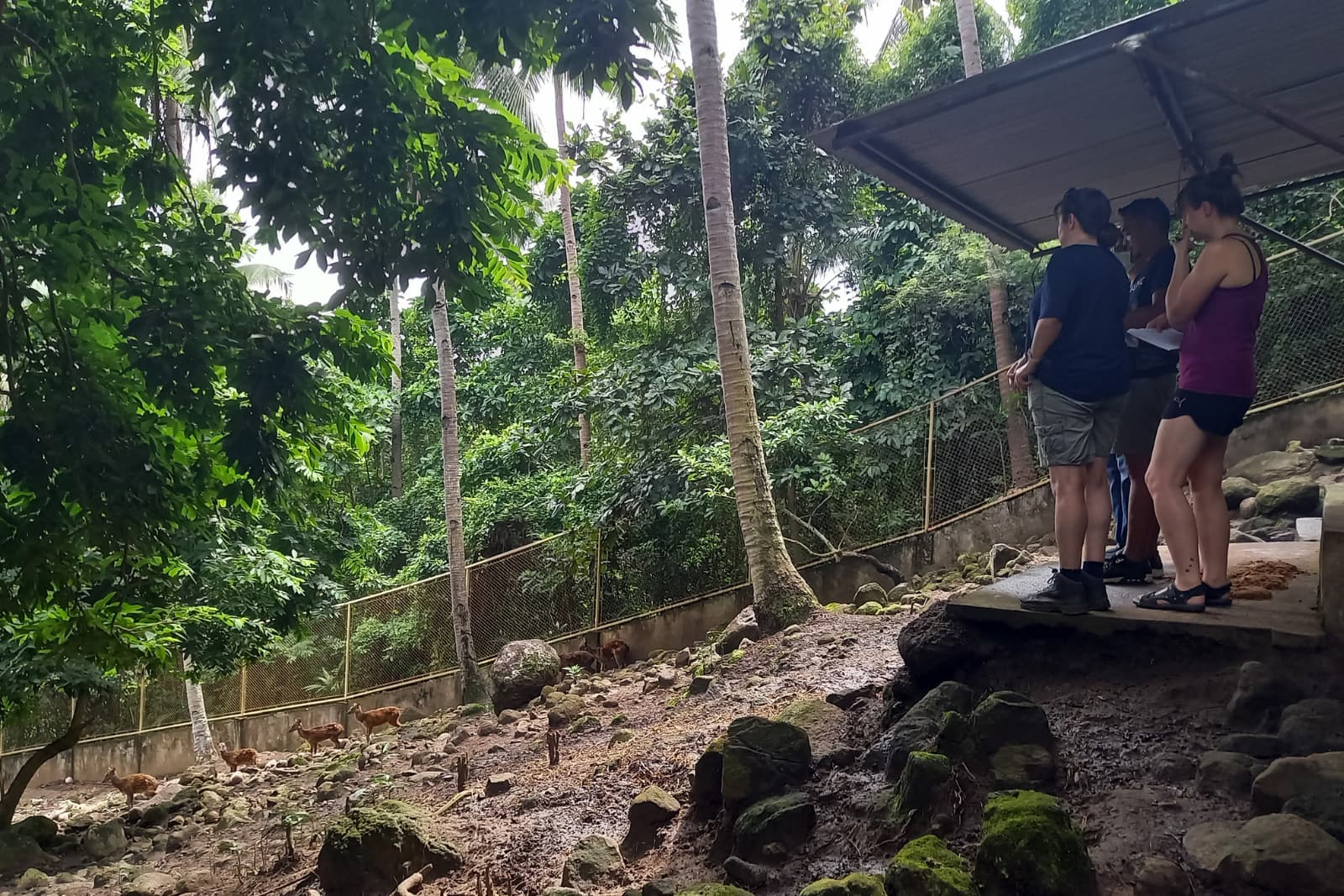
Key achievements
Development of several research projects to inform and improve conservation breeding of Negros bleeding-heart dove, Visayan spotted deer and Visayan warty pig.
Funded a research assistant and a larger aviary for Negros bleeding-heart doves to support behavioural studies at Talarak.
Supported CenTrop in updating husbandry practices, including diet and enrichment plans, behavioural and welfare assessments, digitisation of animal records, and implementation of biosecurity measures against the deadly African swine fever.
Meet our Philippines conservation team

Dr Becca Sargent (she/her) – Philippines Programme Lead
Becca is a conservation scientist with particular interests in animal behaviour, human-wildlife interactions, and community-led conservation.
Becca completed her PhD at Newcastle University, where she investigated the viability of human-dominated landscapes for supporting lion populations. This work encompassed both ecological and social aspects of human-lion interactions. Prior to this, Becca worked on a human-elephant coexistence project and conducted long-term monitoring of elephant populations.
She joined Bristol Zoological Society in 2022 and is the Programme Lead for the Philippines Conservation Programme.

Dr Ricardo Lemos de Figueiredo (he/him) – Conservation Project Manager
Ricardo is an animal behaviour scientist with a special interest in animal welfare and ex situ conservation.
Ricardo joined Bristol Zoological Society in 2023, after completing his PhD on parrot behaviour and welfare at the University of Birmingham. Ricardo has previously worked with multiple zoos and other organisations in animal care, research, and conservation positions, including the Iberian lynx reintroduction programme in Portugal.

Dr Sam Penny (he/him) – Conservation Project Manager
Sam is a wildlife ecologist specialising in applied conservation strategies for tropical ecosystems. He oversees the Society's biodiversity monitoring work in the Philippines, as well as BZS’s conservation work in Cameroon.
Sam’s research has spanned a range of threatened taxonomic groups, including rhinoceros, gibbons and Malagasy amphibians, as well as the interface between drones and conservation.
Latest Philippines conservation news
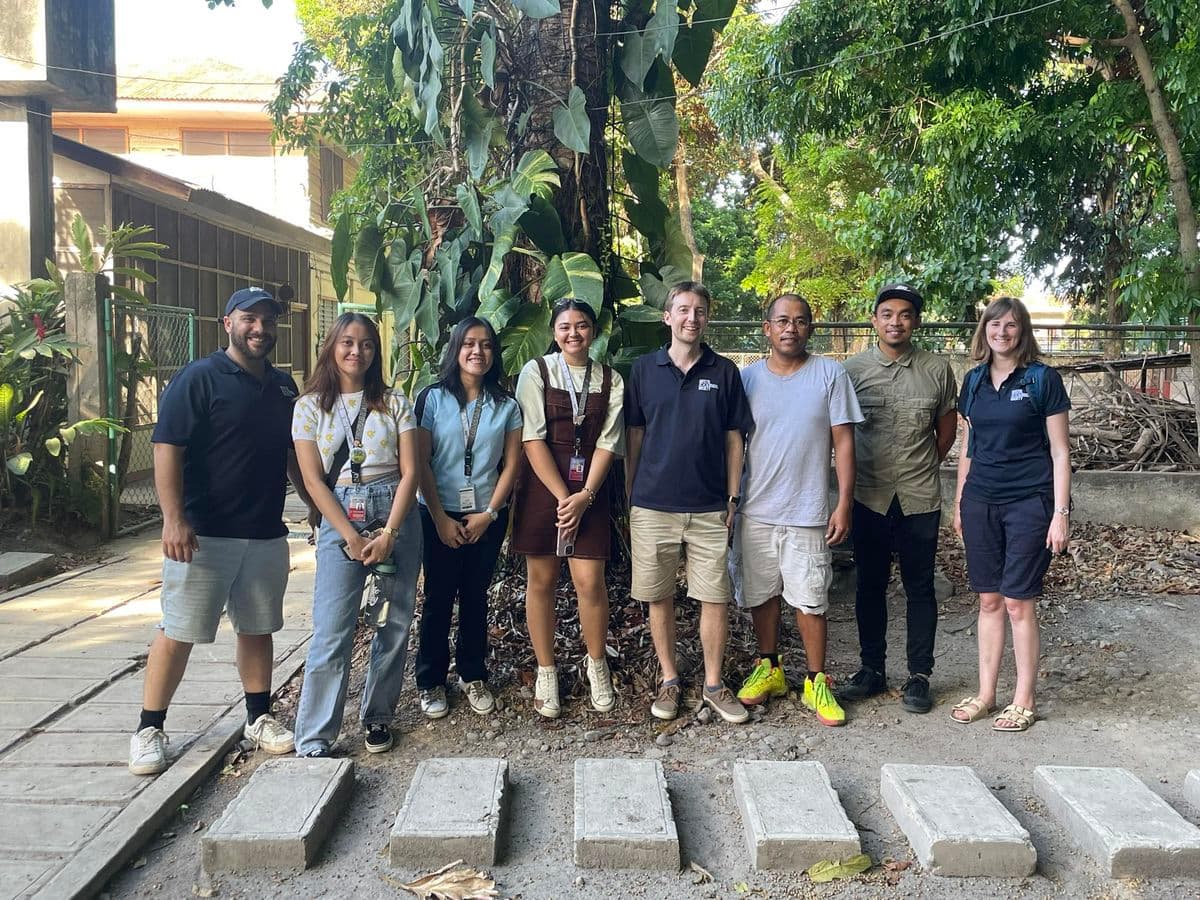
CENTROP project update
Since 2013, we have been working with local partners in the Philippines, Silliman University and CENTROP to save threatened endemic species.

Conservation Heroes: Philippines spotlight
At Bristol Zoological Society, we are celebrating conservation heroes from around the world who are doing amazing work.

Help us to save wildlife!
Our conservation team's amazing work wouldn't be possible without our visitors, members, donors and partners.
Find out how you can support our conservation charity and help Save Wildlife Together.

